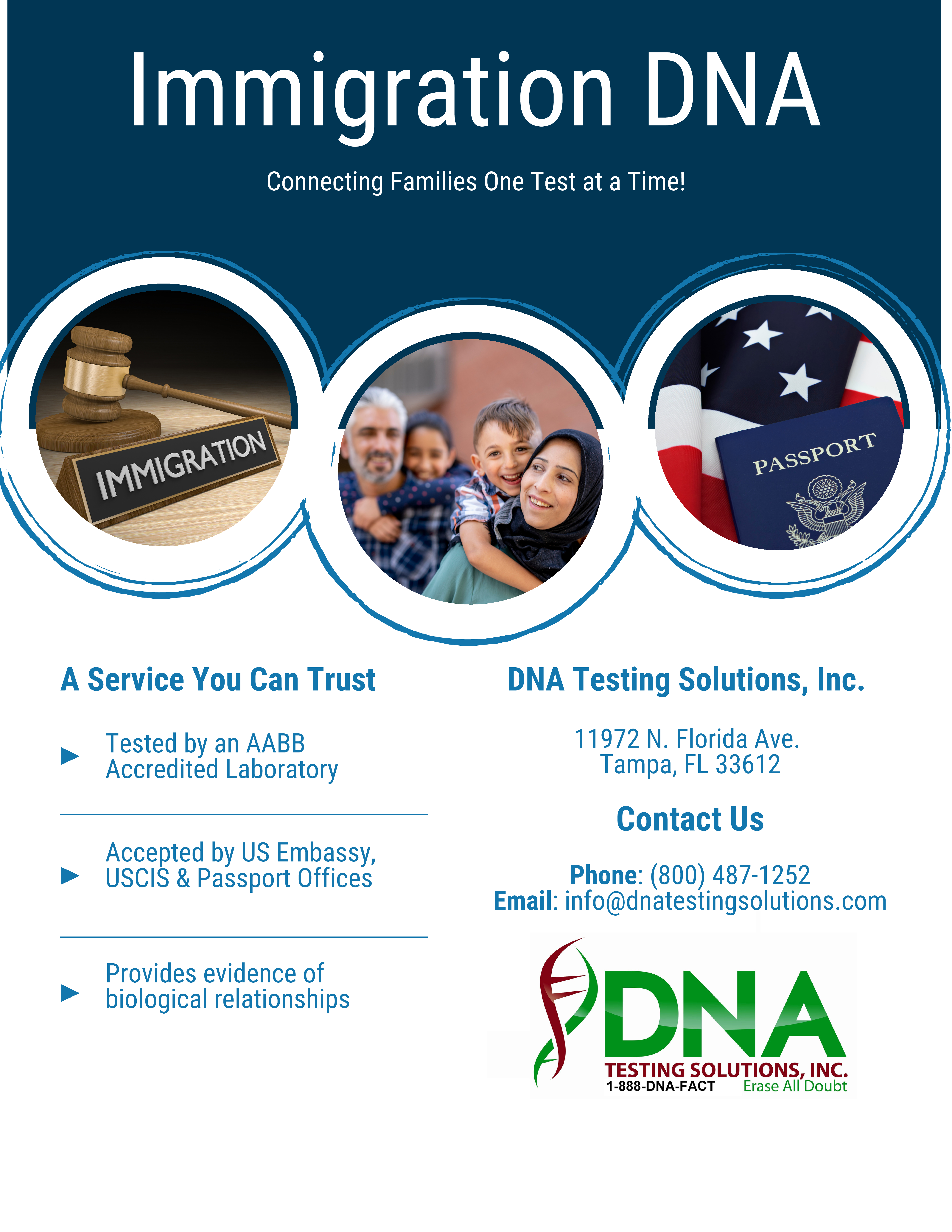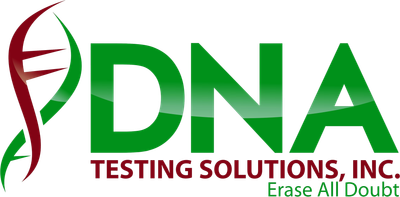Why You Should Choose DTS for your Immigration DNA Test
Immigration DNA Testing, Accredited and Approved.
Why You Should Choose DTS for your Immigration DNA Test
- DTS's Affiliate Lab is AABB-accredited and one of the most trusted laboratories in the world for immigration DNA testing
- With 13 in-house PhDs, your test analysis is in good hands. In fact, our own Dr. Debra Davis was part of the AABB committee that helped develop USCIS standards for the sibling DNA test for immigration
- We test 24 information-rich genetic loci as our base number, and more if necessary
- We test until we get a definitive conclusion—we understand how important this is to you
- We have our own Contracted accredited collection sites in most major U.S. cities, including Tampa, Miami, Chicago, Boston, Minneapolis, Newark, Philadelphia, and Washington D.C/Baltimore
- DTS has over 20 years’ experience working with embassies around the world
- Your results are ready in just a few days
Final Thoughts about Doing a Sibling DNA Test with DNA Testing Solutions
We have the resources and the highest levels of experience to ensure your test is done correctly from start to finish. Our expert staff is ready to help guide you through the process and is committed to making your test experience as stress-free as possible.
Call us at 1-800-487-1252: We’re here to help.




